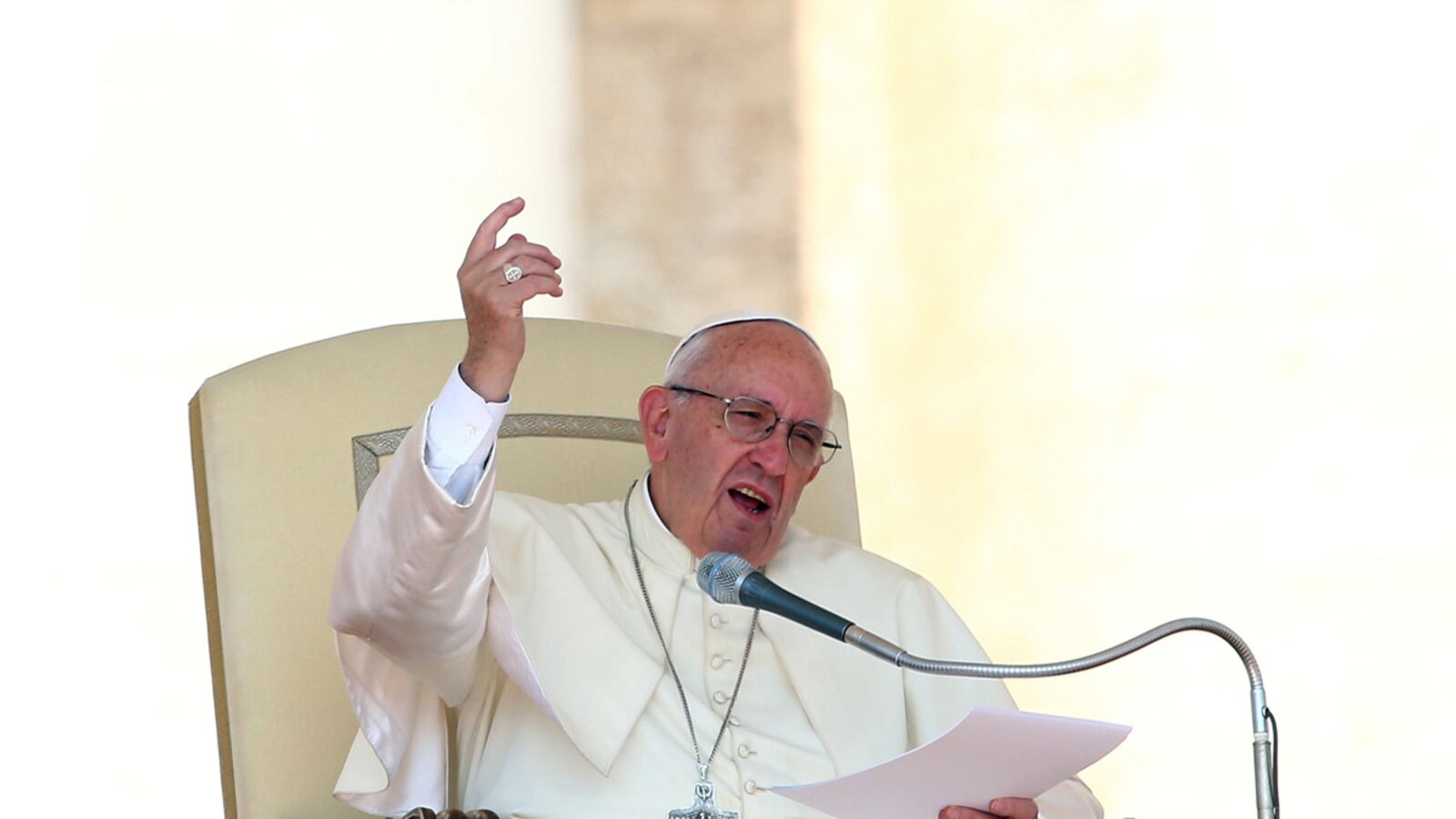ROME — It is certainly no secret that Pope Francis frowns upon idle chatter. Since taking the helm of the Roman Catholic Church in 2013, he has scolded his priests and nuns and parishioners on countless occasions against wagging tongues. “Gossip is rotten,” he told a crowd gathered in St. Peter’s Square back in 2014, not even a year into his papacy. “At the beginning, it seems to be something enjoyable and fun, like a piece of candy. But at the end, it fills the heart with bitterness and also poisons us.”
In early September, he warned bishops who work in missionaries that spreading rumors among the clerical community could destroy the church. “Division is the weapon the devil employs most to destroy the church from within,” he said. “He has two weapons, but the main one is division: the other is money. The devil enters through our pockets and destroys with the tongue, with idle chatter that divides, and the habit of gossiping is a habit of ‘terrorism.’ The gossip is a ‘terrorist’ who throws a grenade—chatter—in order to destroy.”
On Thursday, Francis once again likened gossip to terrorism when he met with members of the Italian Council of the Order of Journalists in Vatican City. “Certainly criticism is legitimate, and, I would add, necessary, just as is the denunciation of evil... Journalism cannot become a ‘weapon of destruction’ of persons or even nations,” he said. “Neither must it nourish fear in front of changes or phenomena such as migration forced by war or by hunger.”
Francis is, by far, the most media savvy pope in history, despite the fact that he says he has not watched television since 1990. He does read newspapers and his aides prepare morning headlines and news briefs about world events.
He is inarguably one of the world’s biggest newsmakers. His cordial in-flight press conferences on Apostolic voyages have become the stuff of legend, where almost all of his most astounding comments have bee shared, from “Who am I to judge?” when asked about whether a gay priest could be considered holy to his comments about Donald Trump not being Christian.
He has more than 30 million Twitter followers on his multiple language @Pontifex Twitter feeds and his @Franciscus Instagram account has more than 3 million followers. His chief spokesman is an American journalist who once worked for Fox news.
Francis has also given more sit-down interviews for newspapers and magazines than any other pope, not to mention allowing unprecedented media access to most papal pageantry that, for years, was tightly guarded and filtered. He has met the leaders of Facebook and Google, and he has held a number of video conferences with students and leaders across the world.
In his remarks to the Italian journalists, he was somewhat sympathetic to the pressure of deadlines fed by round-the-clock news feeds, but he says that tight deadlines should not excuse a rush to judgment or taking comments out of context for the purpose of fear mongering.
“I realize that in journalism today—an uninterrupted flow of events recounted 24 hours a day, 7 days a week—it’s not always easy to arrive to the truth, or at least get close to it. Not everything in life is black or white. Even in journalism, one needs to know how to discern between the shades of gray in the events you are called to cover,” he said. “Political debates, and even many conflicts, are rarely the result of a distinct, clear dynamic in which it is possible to recognize precisely and unequivocally who is wrong and who is right.”
Still, he says journalists and their editors should try harder. “There are few professions which have such influence on society as does journalism,” he said. “The journalist has a role of great importance, and at the same time a great responsibility. In a certain sense you write the ‘first draft of history’… introducing persons to the meaning of events.”






